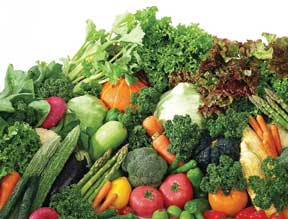Dr. V Sudershan Rao
 Home cooked food is always tastier and better as it is usually eaten fresh. But these days there is a tendency for us to depend on processed food as it is easily available. It is convenient and saves time. However, food produced on a large scale has to remain in good condition for long periods of time until it is consumed and hence there is a need for food additives. The biscuit/bread that you eat may have 7 to 8 different additives each serving a different purpose. Food additives are substances that are added to food during manufacturing, processing, packaging, transporting, or storing. The purpose could be to prevent food spoilage on storage (preservatives), to prevent oxidation (antioxidants), to improve the colour of the product (food colours) or to increase the flavour (flavouring compounds).These substances are added to food in minute quantities and generally do not have any nutritional value. It is estimated that there are more than 2800 food additives used in different parts of the world.
Home cooked food is always tastier and better as it is usually eaten fresh. But these days there is a tendency for us to depend on processed food as it is easily available. It is convenient and saves time. However, food produced on a large scale has to remain in good condition for long periods of time until it is consumed and hence there is a need for food additives. The biscuit/bread that you eat may have 7 to 8 different additives each serving a different purpose. Food additives are substances that are added to food during manufacturing, processing, packaging, transporting, or storing. The purpose could be to prevent food spoilage on storage (preservatives), to prevent oxidation (antioxidants), to improve the colour of the product (food colours) or to increase the flavour (flavouring compounds).These substances are added to food in minute quantities and generally do not have any nutritional value. It is estimated that there are more than 2800 food additives used in different parts of the world.
Consumers are concerned about the presence of these chemicals in food and feel that regular consumption of processed foods with additives may result in many non-communicable diseases such as cancer. People are naturally more concerned when it comes to children eating processed food with additives. It is in this context that one should be informed about some food additives such as synthetic food colours, artificial sweeteners, caffeine, monosodium glutamate, and sulphites.
The author is Scientist D (Asst Director) at the Food and Drug Toxicology Research Centre, National Institute of Nutrition, Hyderabad. He works in the areas of risk assessment of food additives and contaminants and food safety with reference to microbiological contamination. He can be reached at vemulasr@yahoo.com.
